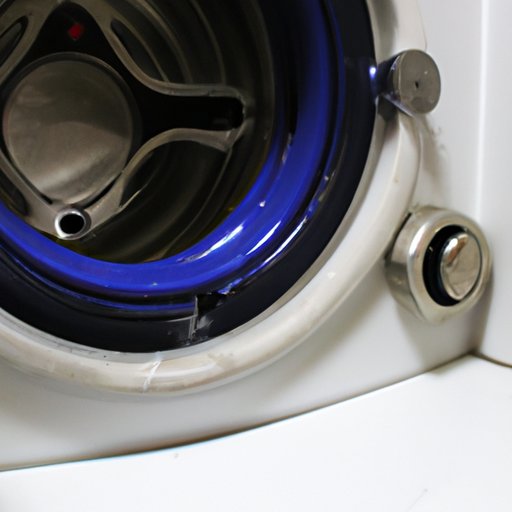Introduction
When it comes to home appliances, you want to get the most bang for your buck. But how do you know when it’s time to replace an appliance? One of the most important questions is, “How long should a washer last?” Knowing the expected lifespan of a washer can help you make an informed decision on when it’s time to repair or replace.
The average lifespan of a washer varies depending on a variety of factors, such as the type of washer, the amount of use, and proper maintenance. In this article, we’ll explore the average lifespan of a washer, signs that it’s time to repair or replace, and tips to maximize the lifespan of your washer.
Consumer Report: How Long Should You Expect a Washer to Last?
According to Consumer Reports, the average lifespan of a washer is 11 years. However, there are many factors that can affect how long a washer will last, including the type of washer, the amount of use, and proper maintenance. For example, a top-loading washer with an agitator has a shorter lifespan than a front-loading washer without an agitator. Additionally, a washer used frequently in a large family will have a shorter lifespan than one used in a small family. Proper maintenance is also key to extending the life of a washer.
A Guide to the Average Life Cycle of a Washer
Every washer, regardless of type or age, will eventually show signs of wear and tear. Common signs of wear and tear include water leaks, excessive noise, slow spin cycles, and unbalanced loads. If you notice any of these signs, it may be time to repair or replace your washer. Generally speaking, here is the expected lifespan of different types of washers:
- Top-loading washers with agitators: 8-12 years
- Top-loading washers without agitators: 10-13 years
- Front-loading washers: 12-15 years
Repair or Replace? Find Out How Long Your Washer Should Last
If your washer is showing signs of wear and tear, it’s time to decide whether you should repair or replace it. The cost-benefit analysis of repairing vs. replacing a washer depends on the age and condition of the washer, as well as the cost of parts and labor. If the washer is older than its expected lifespan, it may be more cost effective to buy a new one. On the other hand, if the washer is still in good condition and the repairs are not too expensive, it may be worth repairing it.
What Factors Affect the Lifespan of a Washer?
There are several factors that can affect the lifespan of a washer. Different types of washers have different lifespans; for example, top-loading washers with agitators tend to have shorter lifespans than top-loading washers without agitators. Additionally, the amount of use can affect the lifespan of a washer. A washer used frequently in a large family will have a shorter lifespan than one used in a small family. Proper maintenance is also key to extending the life of a washer.

Expert Advice: How to Maximize the Lifespan of Your Washer
Experts recommend taking the following steps to maximize the lifespan of your washer:
- Clean the washer regularly using a washing machine cleaner.
- Check the hoses and seals for signs of wear and tear.
- Run a maintenance cycle periodically to remove buildup.
- Use high-efficiency (HE) detergents.
- Avoid overloading the washer or running it with too little clothing.
In addition, experts advise avoiding common mistakes such as leaving wet clothes in the washer for too long, which can lead to mold and mildew growth. It’s also important to clean the lint trap after every load to prevent clogs and reduce the risk of fire.
Conclusion
Knowing the average lifespan of a washer can help you make an informed decision on when it’s time to repair or replace. The expected lifespan of a washer varies depending on the type of washer, the amount of use, and proper maintenance. To maximize the lifespan of your washer, experts suggest cleaning it regularly, checking the hoses and seals, running a maintenance cycle, using HE detergents, and avoiding common mistakes. Ultimately, understanding the life cycle of a washer can help you make the best decision for your needs.


